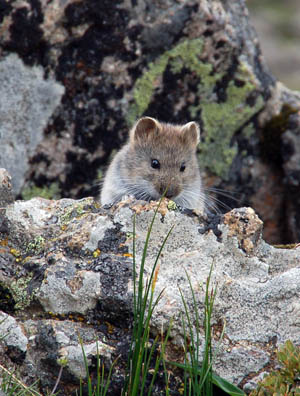I just recently came across this research published already in 2007 on Cordyceps sinensistested as an antidepressant on mice. Past experiments using anti-depressants have shown that mice suspend their tails up in the air when they are in a better mood. So tails up apparently can be used to access the potential of a drug as antidepressant. I pasted the summary in and set a link to the complete paper.
Antidepressant-Like Effect of Cordyceps sinensis in the Mouse Tail Suspension Test
Koji NISHIZAWA, Kosuke TORII, Aya KAWASAKI, Masanori KATADA, Minoru ITO,Kenzo TERASHITA,Sadakazu AISO and Masaaki MATSUOKA
Biol. Pharm. Bull. 30(9) 1758—1762 (2007)link
Summary
Cordyceps sinensis (CS) has been known as a component of traditional medicines that elicit various biological effects such as anti-fatigue, immunomodulatory, and hypoglycemic actions. Since it has been well-established that fatigue is closely related to depression, we used the tail suspension test (TST) in mice to examine the antidepressant-like effects of hot water extract (HWCS) and supercritical fluid extract (SCCS) of CS. Immobility time in the TST was reduced by administration of SCCS (2.5—10 ml/kg, p.o.) dose-dependently though it was not reduced by treatment with HWCS (500—2000 mg/kg, p.o.). Neither HWCS nor SCCS altered locomotor activity in the open field test, excluding the possibility that the effect of SCCS is due to activation of locomotion. Pretreatment with prazosin (an adrenoreceptor antagonist) or sulpiride (a dopamine D2 receptor antagonist) reduced the effect of SCCS on the immobility time. In contrast, pretreatment with p-chlorophenylalanine (p-CPA, a serotonin synthesis inhibitor) did not alter the anti-immobility effect of SCCS. The last finding is consistent with an additional observation that SCCS had no effect on head twitch response induced by 5-hydroxy-L-tryptophan in mice. Taken altogether, these results suggest that SCCS may elicit an antidepressant-like effect by affecting the adrenergic and dopaminergic systems, but not by affecting the serotonergic system.
Key words Cordyceps sinensis; depression; tail suspension test; noradrenaline; dopamine
Here a picture from a mouse (or pika) that observed me with big eyes while I was first photographing and then digging out a Cordyceps at Kongpo Barla. Interestingly the fruiting body already had some gnawing traces. I hope the poor mouse managed to keep its tail up after seeing me stealing its yartsa gunbu.
Summary
Cordyceps sinensis (CS) has been known as a component of traditional medicines that elicit various biological effects such as anti-fatigue, immunomodulatory, and hypoglycemic actions. Since it has been well-established that fatigue is closely related to depression, we used the tail suspension test (TST) in mice to examine the antidepressant-like effects of hot water extract (HWCS) and supercritical fluid extract (SCCS) of CS. Immobility time in the TST was reduced by administration of SCCS (2.5—10 ml/kg, p.o.) dose-dependently though it was not reduced by treatment with HWCS (500—2000 mg/kg, p.o.). Neither HWCS nor SCCS altered locomotor activity in the open field test, excluding the possibility that the effect of SCCS is due to activation of locomotion. Pretreatment with prazosin (an adrenoreceptor antagonist) or sulpiride (a dopamine D2 receptor antagonist) reduced the effect of SCCS on the immobility time. In contrast, pretreatment with p-chlorophenylalanine (p-CPA, a serotonin synthesis inhibitor) did not alter the anti-immobility effect of SCCS. The last finding is consistent with an additional observation that SCCS had no effect on head twitch response induced by 5-hydroxy-L-tryptophan in mice. Taken altogether, these results suggest that SCCS may elicit an antidepressant-like effect by affecting the adrenergic and dopaminergic systems, but not by affecting the serotonergic system.
Key words Cordyceps sinensis; depression; tail suspension test; noradrenaline; dopamine
Here a picture from a mouse (or pika) that observed me with big eyes while I was first photographing and then digging out a Cordyceps at Kongpo Barla. Interestingly the fruiting body already had some gnawing traces. I hope the poor mouse managed to keep its tail up after seeing me stealing its yartsa gunbu.
| |

